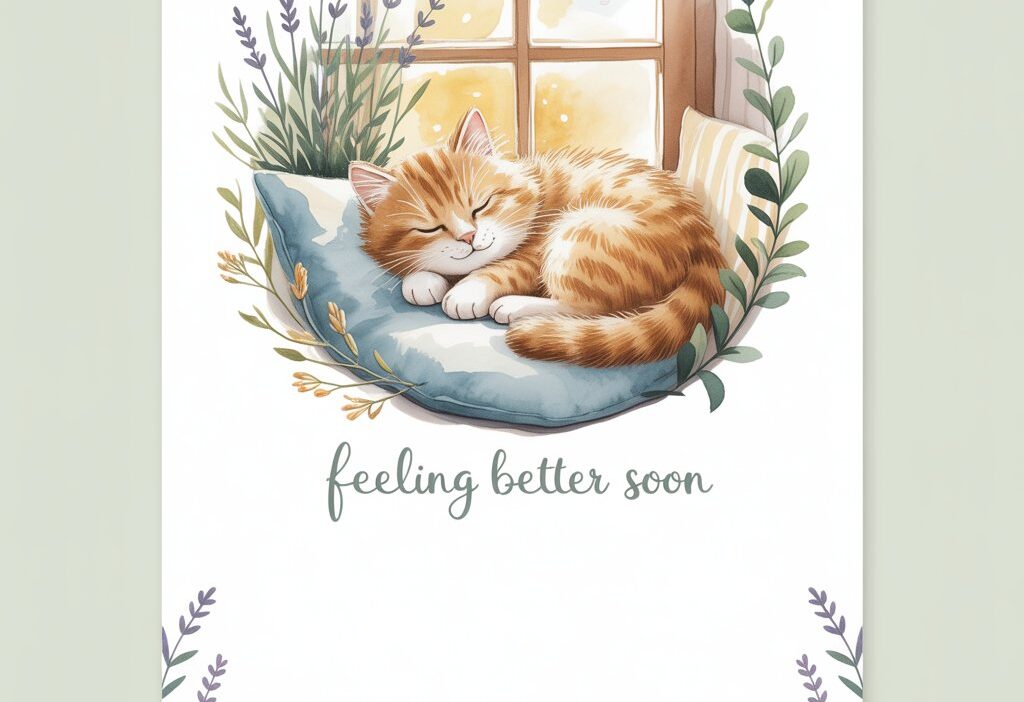When someone you care about is unwell, a get well card can be a beacon of hope. Knowing what to say in a get well card can feel tricky—you want your words to uplift, not upset.
A thoughtful message shows love and support during tough times. Whether it’s a friend recovering from surgery or a family member battling illness, your words matter.
This guide will help you craft messages that bring comfort and smiles. From heartfelt wishes to light humor, we’ll cover ideas to suit any situation.
Let’s make your card a warm hug in written form!
Why Get Well Cards Matter
Get well cards are more than paper—they’re a way to show you care. A kind message can lift spirits and remind someone they’re not alone. Imagine your coworker, Sarah, feeling down after a hospital stay. A card from you could brighten her day.
What to say: “Wishing you strength and a speedy recovery, Sarah! We miss your smile at work.”
What not to say: “You must be so bored in the hospital!” (This might feel dismissive.)
Keep it simple, sincere, and focused on their healing journey.
Personalizing Your Message
A personal touch makes your card special. Mention shared memories or qualities you admire in the person. For example, if your uncle loves gardening, tie that in. This shows thoughtfulness and strengthens your connection.
Example: Your uncle is recovering from a fall. Write, “Dear Uncle Joe, Can’t wait to see you back in your garden, growing those amazing tomatoes! Get well soon!”
What not to say: “Hope you’re not in too much pain.” (This focuses on negatives.)
Think about what makes them unique, and let that guide your words.
Adding Humor Carefully
Humor can lighten the mood, but it’s a balancing act. If the person loves jokes, a playful message might work. Know their personality first. For instance, your funny friend Mike might appreciate a chuckle.
What to say: “Hey Mike, get well quick so we can lose at trivia night again! Sending love!”
What not to say: “Don’t milk this hospital stay too long!” (This could feel insensitive.)
Use humor sparingly and only if it fits the relationship and situation.
Messages for Serious Illnesses
When someone faces a serious illness, your words need extra care. Focus on hope, love, and support without making promises about recovery. Suppose your neighbor Lisa is battling cancer. A heartfelt note can mean the world.
What to say: “Dear Lisa, You’re so strong, and I’m here cheering you on. Sending all my love for your healing.”
What not to say: “You’ll be fine in no time!” (This might feel unrealistic.)
Acknowledge their strength and offer ongoing support to show you’re there.
Short and Sweet Options
Sometimes, a brief message is best, especially for acquaintances. Short doesn’t mean less caring—it can still pack a punch. Picture writing to a teacher you don’t know well.
What to say: “Wishing you a speedy recovery, Mrs. Clark! Thinking of you.”
What not to say: “Get back to teaching soon!” (This might pressure them.)
Keep it warm, concise, and genuine to brighten their day without overstepping.
Inspirational Quotes to Include
Quotes can add depth to your card, offering comfort or motivation. Choose one that fits the tone and person. For example, your cousin Anna, who loves positivity, might appreciate an uplifting quote.
What to say: “Anna, ‘The greatest healing therapy is friendship and love.’ – Hubert H. Humphrey. You’ve got both in spades! Get well soon!”
What not to say: A quote that’s too heavy or unrelated to healing.
Pair the quote with a personal note to keep it meaningful.
Final Thoughts
Crafting what to say in a get well card is about showing love and support. Whether you choose humor, heartfelt words, or a simple note, your message can brighten someone’s day.
Think about the person, their situation, and what will lift their spirits. A card is a small gesture with a big impact, reminding them they’re cared for.
Next time you’re unsure, use these tips to write a message that feels just right. Your words can be a step toward their healing.




